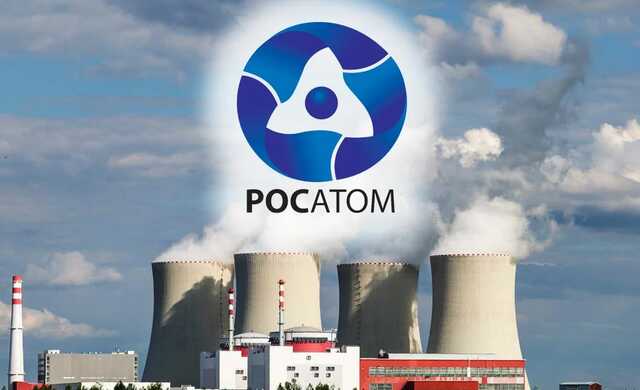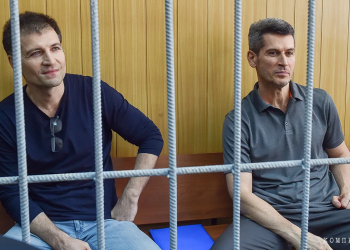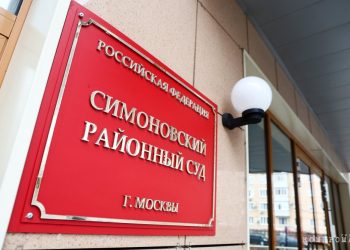Is a large-scale modernization possible without a corruption component?
State Corporation Rosatom is known for its large-scale projects, the cost of which sometimes reaches billions of rubles. For example, they are starting work on a project for a molten-salt reactor for the disposal of radioactive waste generated during the processing of spent nuclear fuel. More than 580 million rubles in the next two years will be invested in the modernization of the experimental site for the manufacture of superconductors on the basis of the Moscow VNIINM. Academician Bochvar. But corruption is an invariable companion of budget financing and solid state contracts: employees of Rosatom at various levels regularly find themselves in the center of attention of the security forces: from ordinary specialists to heads of subordinate institutions. In 2020, an adviser to the general director of the state corporation Alexei Likhachev, a former State Duma deputy Vladimir Grachev, became a defendant in a criminal case on a bribe. Among the structural subdivisions of Rosatom, the Research Technological Institute named after A.I. A.P. Aleksandrov, whose management has repeatedly concluded state contracts with losses for the institution. So, in 2010-2013. Grigory Naginsky’s Titan-2 holding carried out a large-scale reconstruction here worth 230 million rubles, and already in 2021 it was decided to decommission the nuclear power plant of the KV-2 stand, for which Rosatom allocated nearly a billion rubles. The purchase by the institute of three sets of discharge ramps for gas cylinders worth 1 million turned into a scandal: having received an advance payment, the Voronezh contractor MIO LLC at first did not fulfill the terms of the contract, and then went bankrupt, having previously liquidated the legal entity-founder. A significant part of the dubious auctions were held during the period when Vyacheslav Vasilenko was the general director of the institute, but the big question is whether the situation will change after the recent appointment of Oleg Pykhteev to a senior position.
Rosatom invests billions
Rosatom State Corporation announced the start of work on a new large-scale project – a research liquid-salt reactor designed to develop a technology for the disposal of long-lived radioactive waste generated during the processing of spent nuclear fuel.
“The technical design of the installation is planned to be completed in 2024, to obtain a construction license in 2027, to launch the reactor in 2031,” TASS reports with reference to the trade publication Strana Rosatom.
The reactor is a plant in which the active zone is formed by a molten mixture of salt fluorides and fissile material fluoride. It is clarified that the technology completely eliminates the recurrence of the Chernobyl-type accident: the safety of the reactor increases the absence of pressure in the circuit, even if there is a high temperature in the core (about 700 degrees Celsius).
The cost of the project is not specified, but there is no doubt: the state corporation is ready to invest hundreds of budget billions in it. Something, but Rosatom does not spare money. For example, for the modernization of the experimental site for the manufacture of superconductors on the basis of the High-Tech Research Institute of Inorganic Materials. Academician A.A. Bochvar” in 2022-2024 the government will allocate almost 587 million rubles.
Against this background, the declared five billion investments in the construction by Rusatom Greenway of a battery processing complex with an annual capacity of 50 thousand tons in Dzerzhinsk (Nizhny Novgorod Region) look just pennies. The state corporation spent much more on the acquisition last January from the oligarch Mikhail Prokhorov of the Quadra energy company, which was previously part of the Onexim group: despite the fact that the price of the transaction was not announced, Vedomosti experts estimated it at 26 billion rubles.
Contracts, kickbacks, criminal cases
It is well known that the problem of corruption is closely connected with budget investments and contracts worth billions, and Rosatom is no exception in this regard. Subordinates of Alexei Likhachev (general director of the state corporation) and Sergei Kiriyenko (chairman of the Supervisory Board) regularly become “heroes” of the criminal chronicle.
Perhaps the most resonant was the detention by the FSB in August 2020 and the subsequent house arrest of the adviser to the head of Rosatom, ex-State Duma deputy Vladimir Grachev. As Kommersant reported, the 78-year-old professor extorted a bribe of 1 million euros from a representative of a waste processing company for lobbying its interests. Grachev was detained in the Moscow restaurant “Vanil” upon receipt of the first “tranche” in the amount of 3 million rubles.
Prior to this, Vladimir Shchennikov, financial director of JSC Scientific Research Institute of Technical Physics and Automation (NIITFA), a part of the state corporation, became a defendant in a criminal case on taking a bribe on an especially large scale. Together with Vitaly Charushin, a specialist in the field of maintenance of medical equipment, and Alexander Doroshenko, chief engineer of the Radiy Installation Company (a permanent contractor of the institute), Alexander Doroshenko, he received money for refusing to participate in NIITFA and Radiy in auctions, providing other structures with access to government contracts.
In December 2020, the Kievsky District Court of Simferopol sentenced Igor Sushkov, the former general director of JSC NPK Dedal (part of Rosatom), to five years in prison, finding him guilty of transferring a bribe in the amount of 2.5 million rubles to the head of the engineering and technical department of the Border Guard Service FSB. The money was intended for “general patronage”, as well as the conclusion of a state contract for the purchase of the Delfin-M security complex produced by the corporation.
Last July, the Znak agency reported that a criminal case had been opened against a specialist in the logistics department of Mayak Production Association (located in Chelyabinsk Ozersk), accused of taking a bribe in the amount of 80 thousand rubles from a representative of a commercial structure for securing the conclusion of a contract for supply of building materials. But against the backdrop of millions of “kickbacks”, in this case, the well-known aphorism is involuntarily recalled, according to which “a bribe humiliates the more, the less it is.”
Strange modernization from “Titan-2”
Curious things have been happening for years at such an enterprise controlled by Rosatom as the Scientific Research Technological Institute. A.P. Aleksandrov” (FGUP “NITI named after A.P. Aleksandrov”, located in the Leningrad region, in Sosnovy Bor) is the only center in Russia that specializes in conducting integrated tests of ship and space nuclear power plants in order to bring them up to required level of reliability and safety.
In November 2010, it became known that the Titan-2 holding owned by Grigory Naginsky, by order of Rosatom, would carry out the technical re-equipment of NITI im. A.P. Alexandrova.
“Until December 2015, a phased modernization of equipment, technological systems, electrical and computer networks and other works will be carried out at the facility for a total amount of 230 million rubles,” the press service of the holding said in a statement.
According to the information on the Titan-2 website, in 2011 work was carried out on the installation of electrical networks and networks of working and emergency lighting; installation of the SNTV system for stands KV-1 and KV-2; installation of a water supply and sewerage system, heating and ventilation of the simulator complex of ship nuclear power plants, etc.
In May 2013, the press service of the holding told about the receipt of a letter of thanks from the management of NITI im. A.P. Alexandrov” “for the successful implementation of work on the technical re-equipment of the enterprise.”
“Despite the tight deadlines, the installation of the main systems was carried out with good quality and on time, as well as in compliance with all regulatory requirements for nuclear facilities and equipment manufacturers,” the text of the official message said.
One gets the impression that the previously announced work was carried out in full. It is not clear just what kind of tight deadlines we are talking about, because initially their end was scheduled for December 2015.
The tender announced by Rosatom in July 2021 leads to questions about the timing and quality, as well as the intended use of previously allocated funds. The subject of the procurement is “decommissioning of the nuclear power plant of the stand KV-2 of the Federal State Unitary Enterprise NITI im. A.P. Alexandrov”, the contract price is 916.5 million rubles. In the end, the institute itself became the only participant and winner of the competition. As they say, the money remained in the family.
An interesting situation is emerging. First, the state corporation invests 230 million in the modernization of equipment, systems and networks of the institution, including the KV-2 stand, and a few years later, it allocates almost another billion to decommission the same stand. What is the meaning of such modernization is unclear. Didn’t the leadership of the institute, conducting it, have any plans for a specific stand? Or maybe the funds intended for the KV-2 “left” in another direction?
The contractor “merges” with the founder
But this is the amazing “contract” stories of “NITI im. A.P. Alexandrov” do not end. In November 2019, the management of the institution signed a contract for the supply of a discharge ramp for the simultaneous connection of three gas cylinders. The cost of three sets of equipment amounted to 1 million rubles, the only participant in the auction and the supplier was Voronezh LLC MIO.
As follows from the official statement of the FAS Department for the Leningrad Region, an advance payment in the amount of 301.5 thousand rubles was transferred to the contractor. Under the terms of the contract, the kits were to be delivered to the customer by February 28, 2020. However, the delivery was not made, the demand for the return of the advance remained unanswered, and last July the institute terminated the contract unilaterally.
As a result, the antimonopoly agency included MIO in the register of unscrupulous suppliers. Representatives of the enterprise, by the way, did not deny the fact of non-fulfillment of obligations, stating that the violation of the delivery time was due to the fault of the manufacturer, as well as due to their own financial difficulties.
Meanwhile, an elementary analysis of information about the supplier, available in open sources, already leads to serious doubts. Officially, the main activity of MIO LLC is the rental and management of non-residential property. At the end of 2020, with revenue of 1 million rubles, the company’s losses amounted to 29.9 million. It can be assumed that this was a difficult period of the same financial difficulties that were mentioned above, but no: a year earlier, the company declared losses in the amount of 2.7 million on revenue of 1.8 million rubles.
Today, MIO is in the process of bankruptcy. In February last year, the Scientific Research Institute for Hygienic Safety of Building Materials and Industrial Waste, which acted as its co-founder, was liquidated. The main activity is “testing and analysis of the composition and purity of materials and substances: analysis of the chemical and biological properties of materials and substances testing and analysis in the field of food hygiene, including veterinary control and food production control”.
But despite the entourage of scientific research, the research institute was a private structure, the co-owners of which were Gennady, Igor and Olga Makhotin. By the way, the last two were also among the co-founders of MIO. The available financial indicators of NP NII GBSMIPO for 2018 look disappointing: with zero revenue, its losses amounted to 4 thousand rubles. On what bases and in what laboratories the Makhotin family conducted biological and chemical research – now one can only guess.
What considerations are guided by NITI im. A.P. Alexandrova” when choosing contractors? Note that questions arise on a number of contracts. Such, for example, as the purchase of products (including alcoholic beverages) for the institute’s canteen and cafe for more than 100 million rubles. Or a contract for the supply of ten ultrasonic gas meters, for which, under the previous head, Vyacheslav Vasilenko, the institute paid 26.3 million rubles (that is, 2.6 million apiece).
It is difficult to say whether the current state of affairs will change after the change of leadership and appointment last November. CEO Oleg Pykhteev. After all, “NITI them. A.P. Aleksandrov” is part of the complex structure of Rosatom, where financial appetites sometimes go wild.












